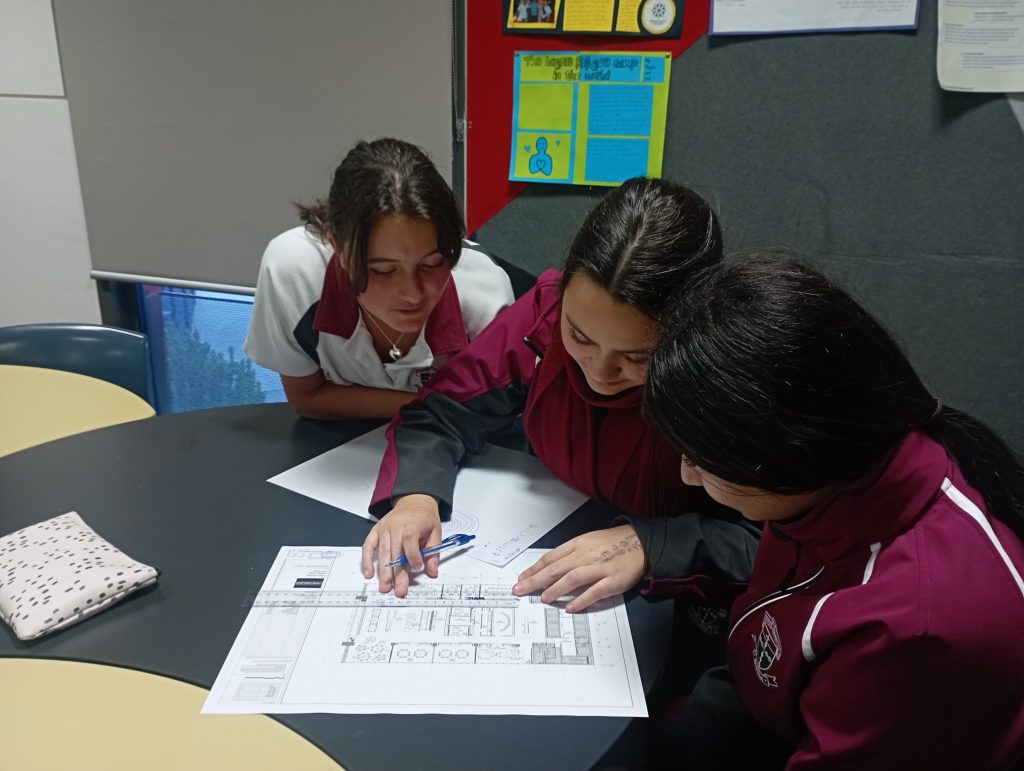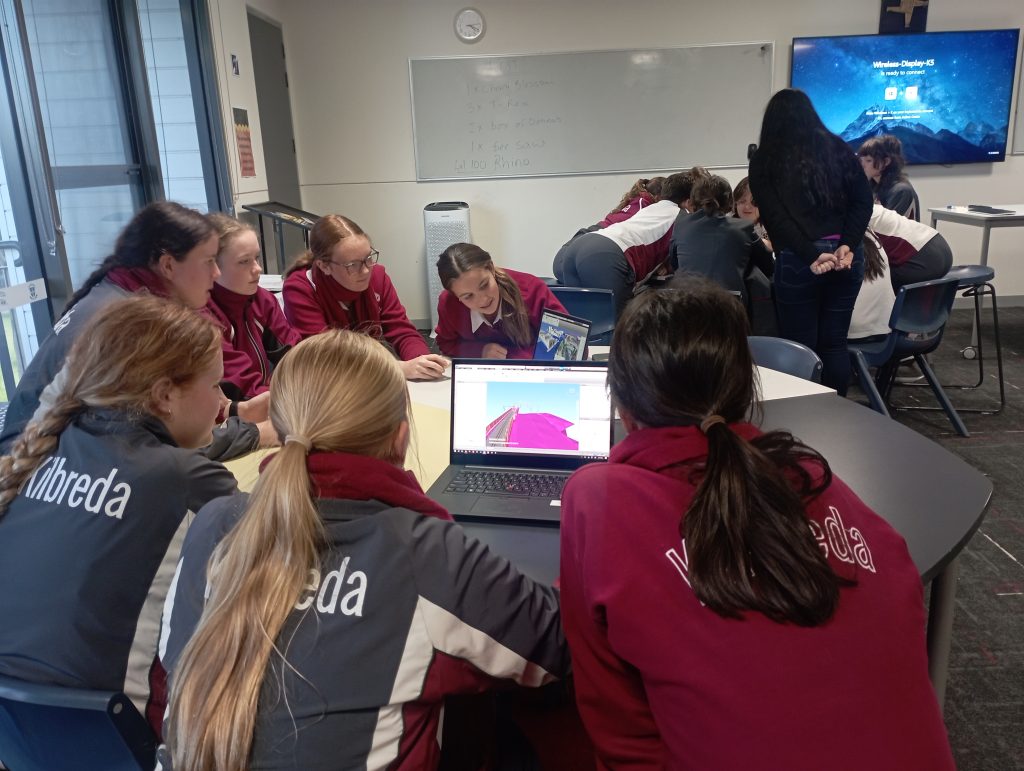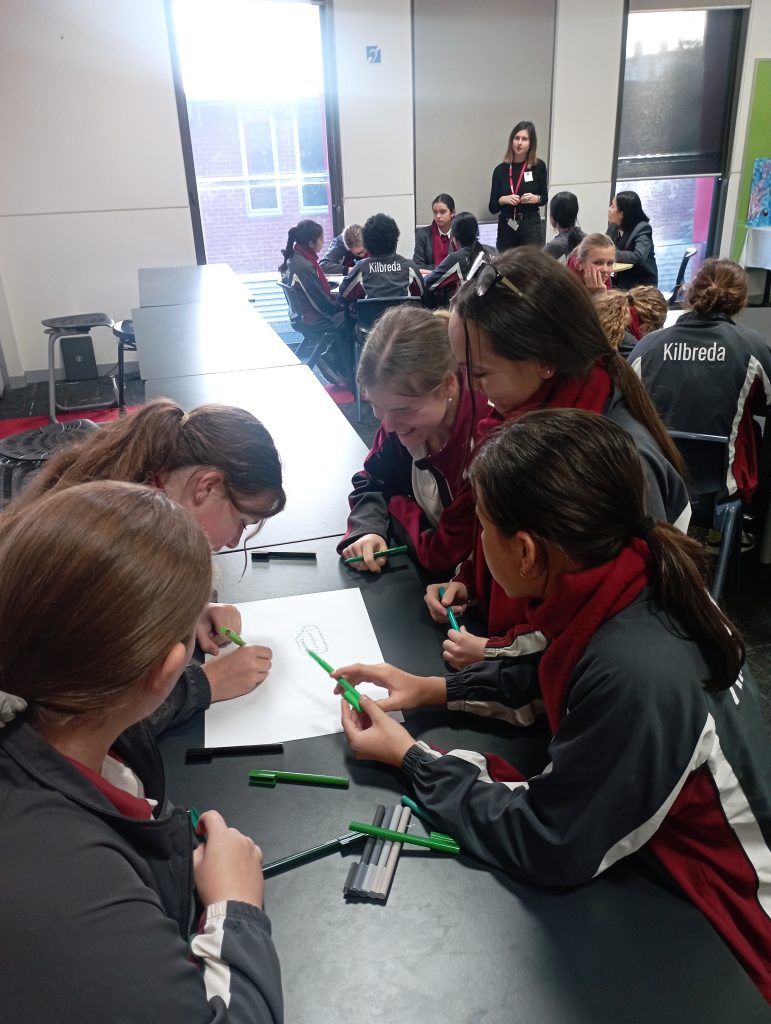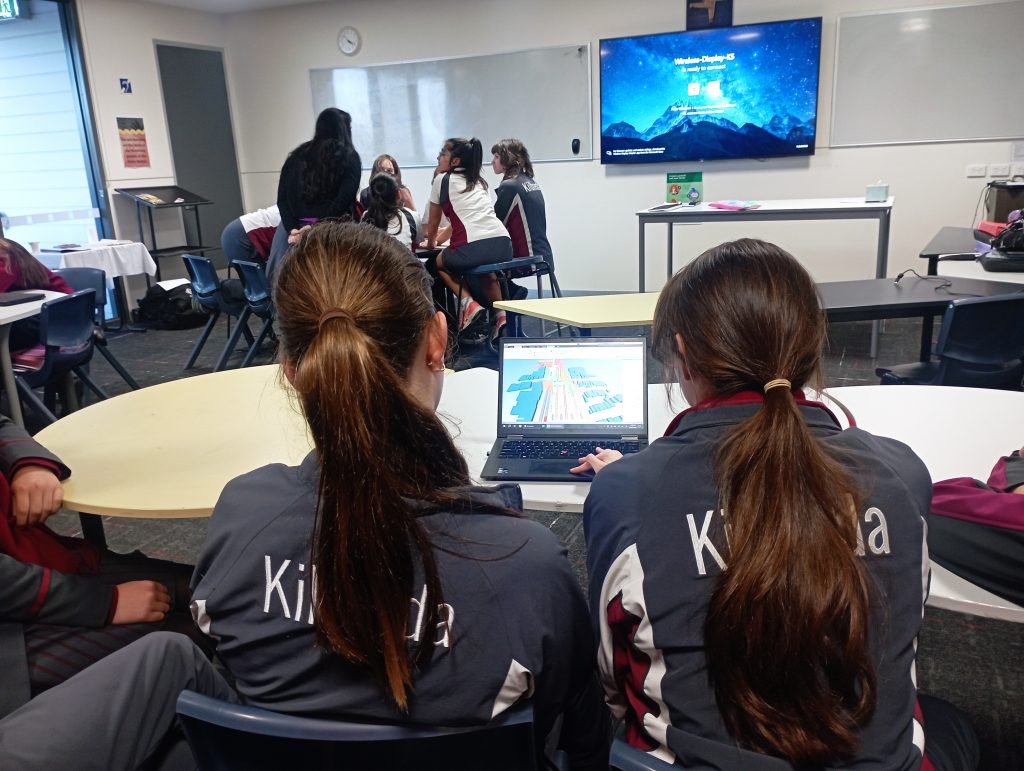Science
The Big Science Competition
On 18 and 19 May, 57 students from Years 7 to 10 participated in the Big Science Competition. Our students have participated in the annual competition, organised by Australian Science Innovations, for many years. Students complete the competition online and compete against students from around the nation. Thank you to the students who showed courage by giving the competition a go for the first time, as well as to those who compete every year. We wait in anticipation for the results!
Competing Students
| Year 7 | Year 8 | Year 9 | Year 10 |
| Annalisa Athanasiadis | Amelie Baker | Bella Costante | Taylah Bell |
| Georgia Athanasiadis | Annie Bajram | Isha Gurung | Katie Giantsos |
| Luciana Avila | Aathira Binoy | Ava Hardman | Yzabel Mariano |
| Keira Blackmore | Alice Davies | Matilda Harrison | Hannah Mesic |
| Lauren Carino | Olive Davies | Eloise Holborn | Phoebe O’Toole |
| Madeline Donaldson | Matilda De Jong | Rhiannan Marie-Jeanne | Grace Robins |
| Sophie Donnelly | Matilda Exton | Sophie McKeown | Hazel Woodhouse |
| Mia Duran | Emily Gamble | Lara Mhanna | |
| Lucy Glynn | Sofia Gracias | Abbey Tomlinson | |
| Kara Gurung | Emma Greaney | Daisy White | |
| Celeste Healy | Thea Huynh-Koncar | ||
| Charlotte Kandasamy | Tijana Huynh-Koncar | ||
| Vivian Liang | Dana Issa | ||
| Polly McCormack | Allie O’Brien | ||
| Scarlett Presnell | Hannah Ross | ||
| Neive Rodgers | Madeline Russell | ||
| Eve Ross | Samaira Saigal | ||
| Chloe Ward | Rosana Smyth | ||
| Zara Solomon | |||
| India Stegeman | |||
| Pratima Thomas | |||
| Verity Winthrop |
Inspiring STEM+ Programme Module Two
On Wednesday 24 May, Kilbreda welcomed back Laing O’Rourke for our second module of the Inspiring STEM+ Programme. The theme of this module was Digital Engineering. Students learnt about how digital technologies and methodologies can be used to enhance project planning, design, construction and maintenance phases. They got to work with an example of Building Information Modelling (BIM) – a digital representation of the physical and functional characteristics of a project. Laing O’Rourke uses BIM to create a virtual model that incorporates various aspects such as architecture, structure and services. BIM facilitates better coordination and collaboration among project stakeholders, enables clash detection, and provides valuable insights for efficient design and construction.
The students participated in three activities that focused on different aspects of planning, the technology that aids in increasing the efficiency of a project, and the consideration of community engagement and input.
Student Reflection
During the program we did really interesting activities like exploring a train station in Sydney; we had to use a computer program to find things like rhinoceros, boxes of donuts, or a couple of T-rexes scattered around. We looked at a building plan and had to count how many chairs there were to try and beat the machine. It was quite difficult! We looked at a suburb with a new train line being built and found some things they could improve on like adding a park or even a whole lake. It was an enjoyable afternoon, and we can’t wait for Module Three on sustainability.
Harriet Dale, Sofia Abblitt and Indiana Dickson
Year 9
Calling all Year 11 Students: The National Youth Science Forum (NYSF)
Do you love Science, Technology, Engineering or Mathematics? Or do you have the drive to find solutions to problems and fix things?
Are you curious and constantly asking Why? How? Why not?
Do you see yourself working in a science or technology-related field and would like to know more about STEM-related study and career paths?
If you answered ‘Yes’ to any of these questions, then apply to attend the NYSF Year 12 Program.
The NYSF Year 12 Program runs two summer sessions. Participants stay at university colleges and are immersed in science and technology and have the opportunity to:
- Participate in tours of science and technology facilities
- Learn about cutting-edge research
- Learn about university, training and STEM career pathways
- Mix with other like-minded students from all over Australia
- Participate in social and team building activities
2024 Dates and Locations
- The Australian National University, Canberra (5 to 13 January 2024)
- The University of Queensland, Brisbane (12 to 20 January 2024)
Please note there are program and travel fees associated, and students are encouraged to seek financial support from NYSF’s founding partner, Rotary Australia, by contacting their local Rotary Club. Many are familiar with the NYSF and able to offer some level of funding or assist students to fundraise. NYSF does offer a limited number of NYSF Access and Equity Scholarships; all students can apply for these after they are offered a place.
In the Wild World of Science…
Our Year 9 students were recently introduced to the core components of the human immune system and will expand upon these concepts in much more detail in Year 12 Biology. The Year 9 students focus on the three lines of defence and whether a virus is considered living or non-living. The Year 12 students explore the complexities of the cells and chemicals that protect us from infection and how allergies and autoimmune diseases are a product of an immune system going haywire.
New research suggests that the Epstein-Barr virus (EBV), a common infection, may be linked to multiple sclerosis (MS), an autoimmune disease where the immune system attacks the brain and spinal cord. A recent study found that almost all people with MS had been infected with EBV before. The study also discovered that certain substances produced by the immune system in response to EBV can mistakenly attack a protein in the brain, causing inflammation and MS symptoms. This study also found that a type of immune cell called T cells may be involved in MS as well, promoting inflammation and exacerbating MS symptoms. While more research is needed, this new understanding could help develop personalized treatments and potentially find a cure for MS.

Sarah Chuck
Learning Leader: Science






